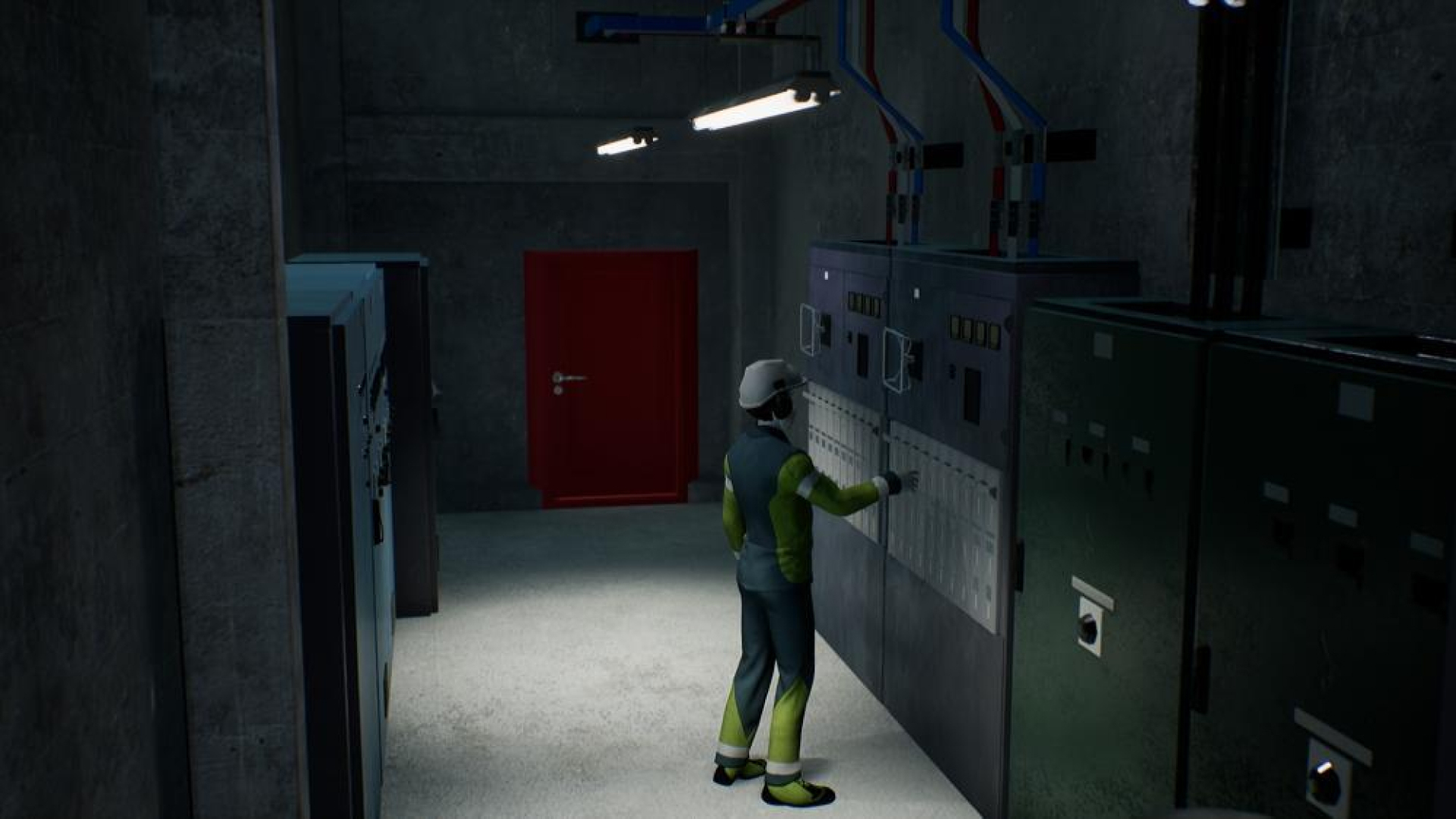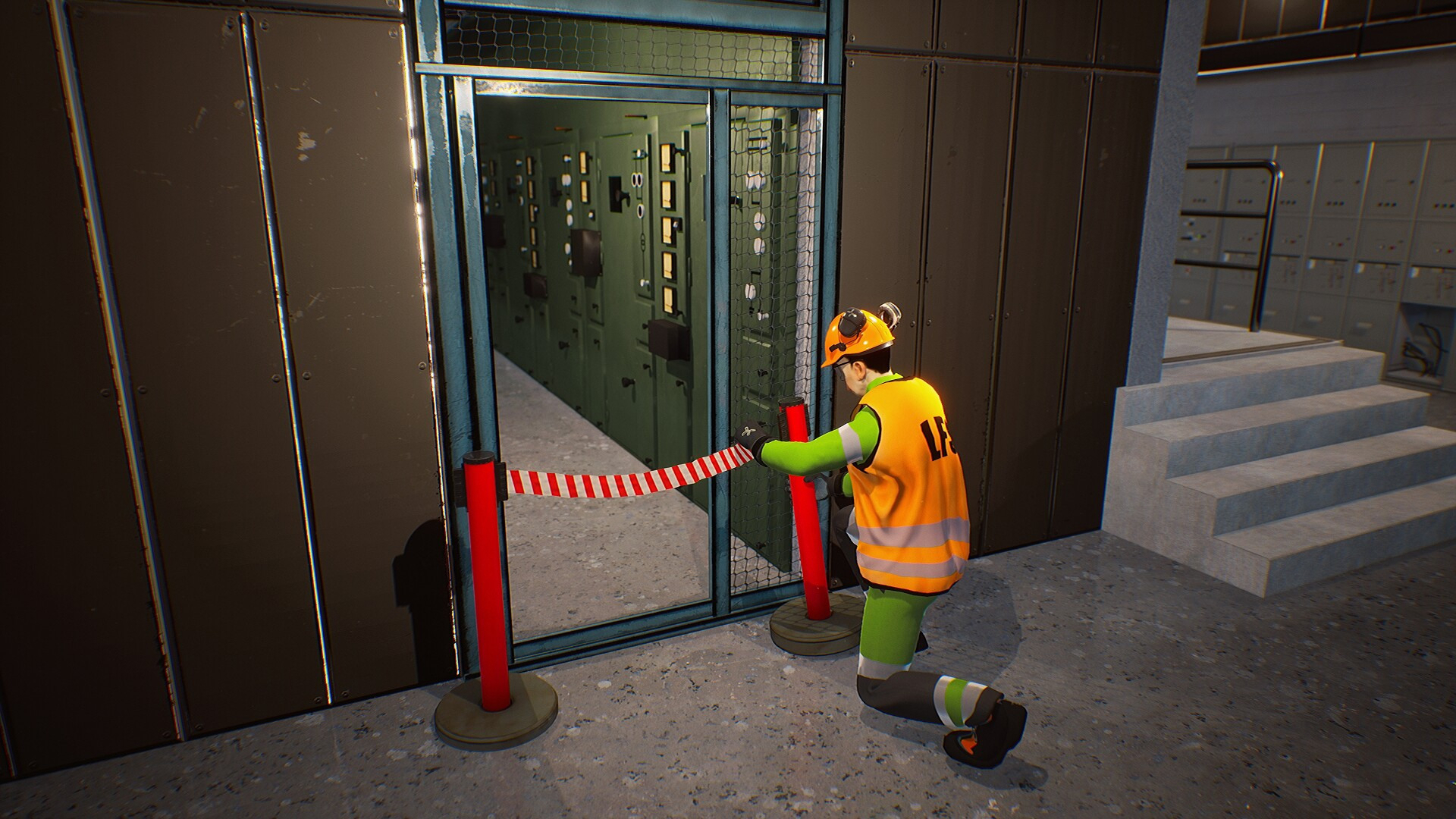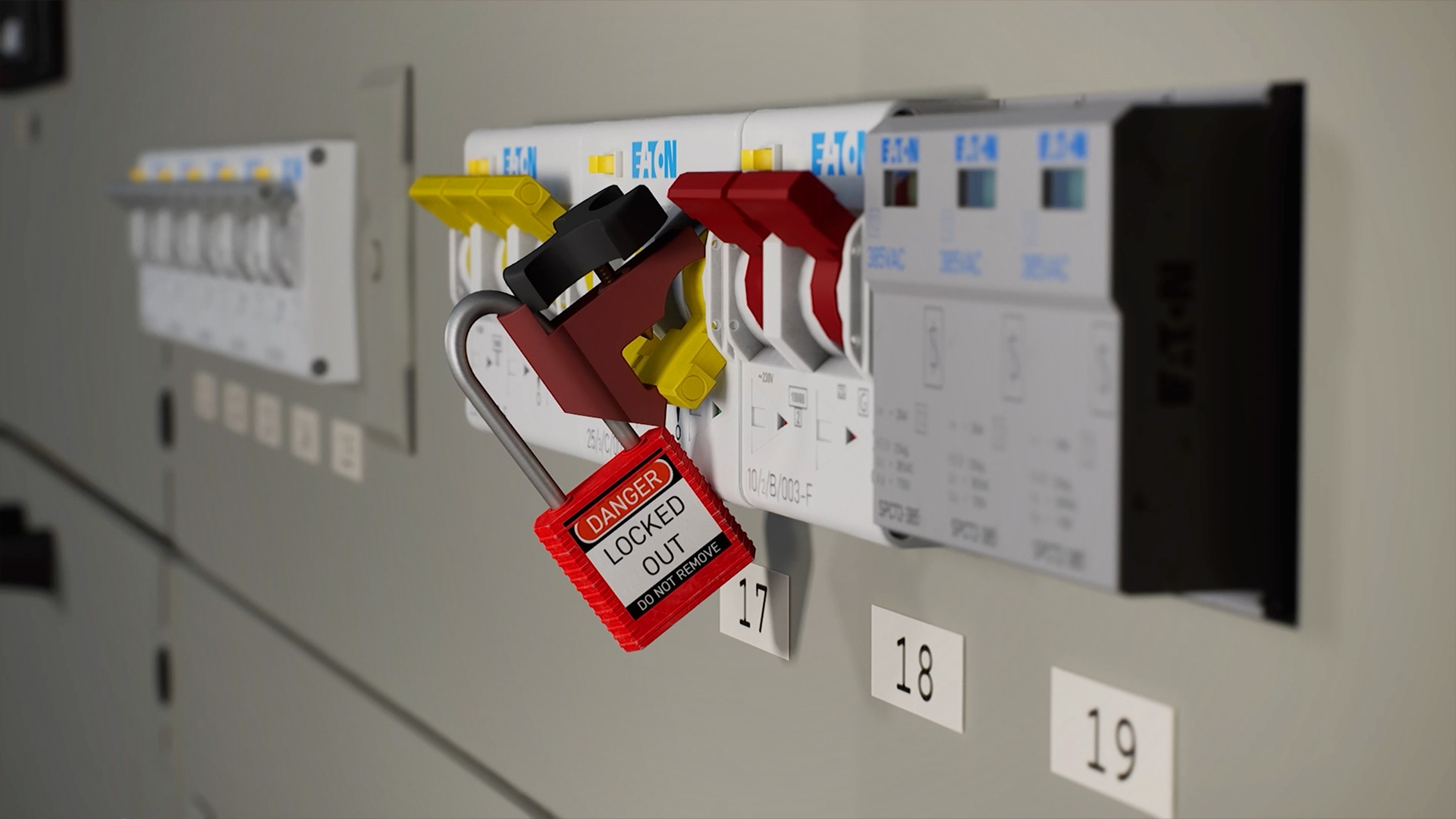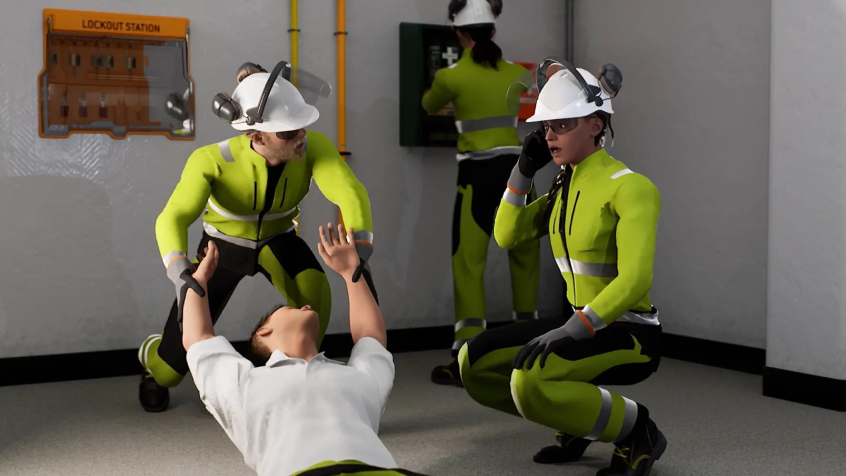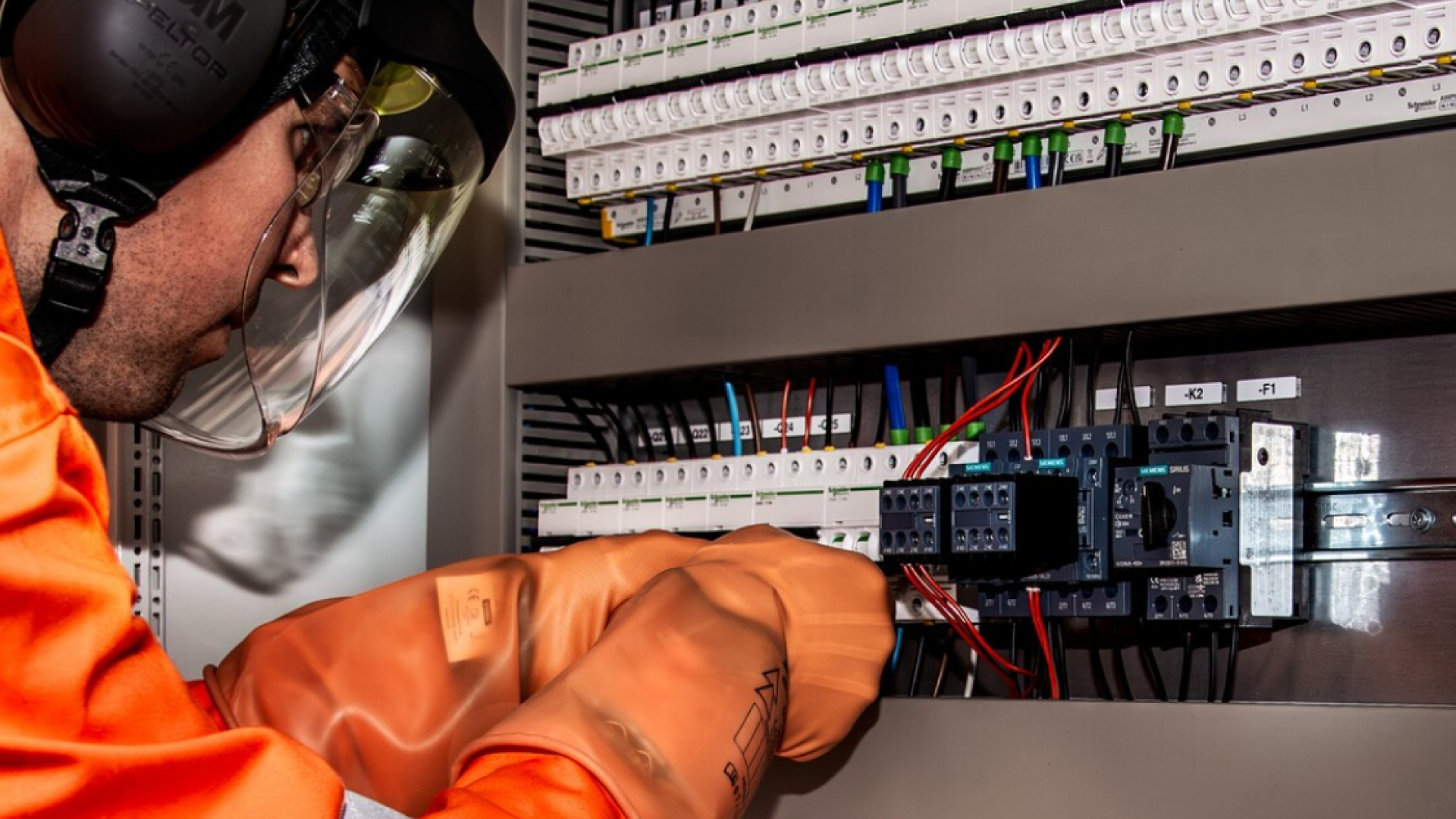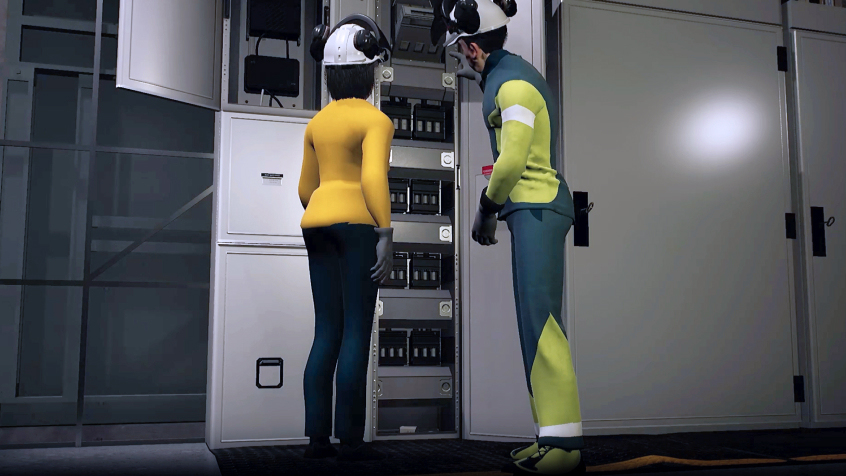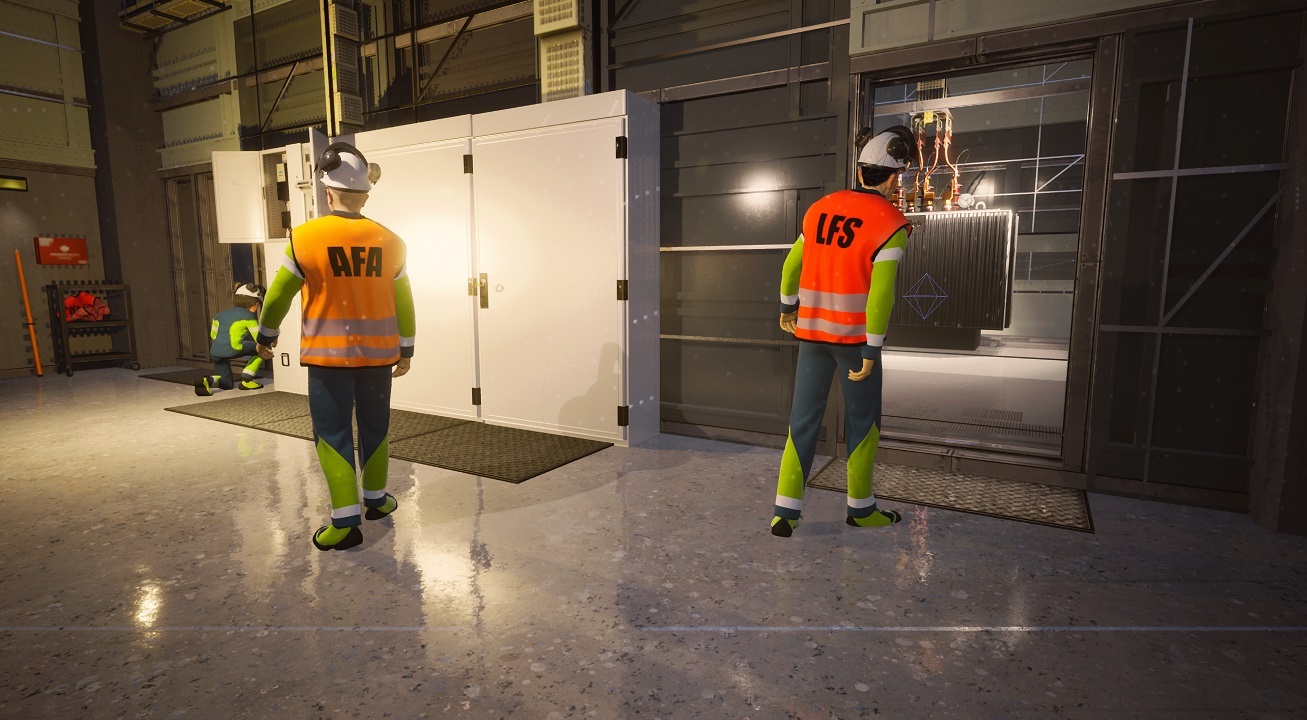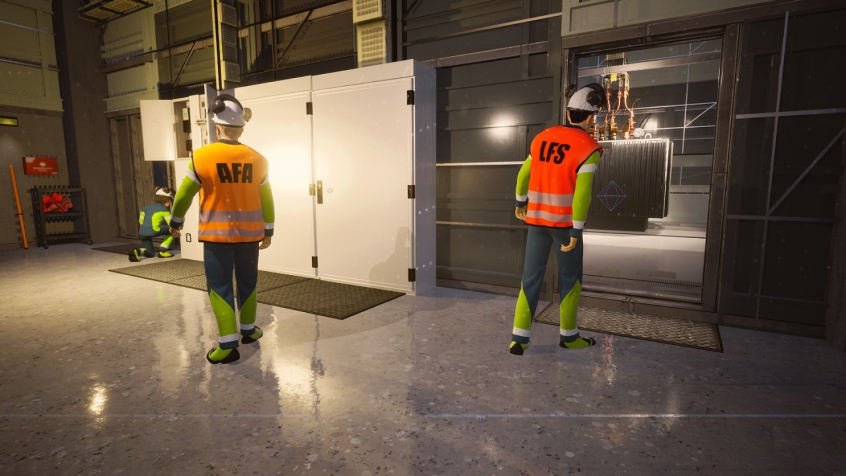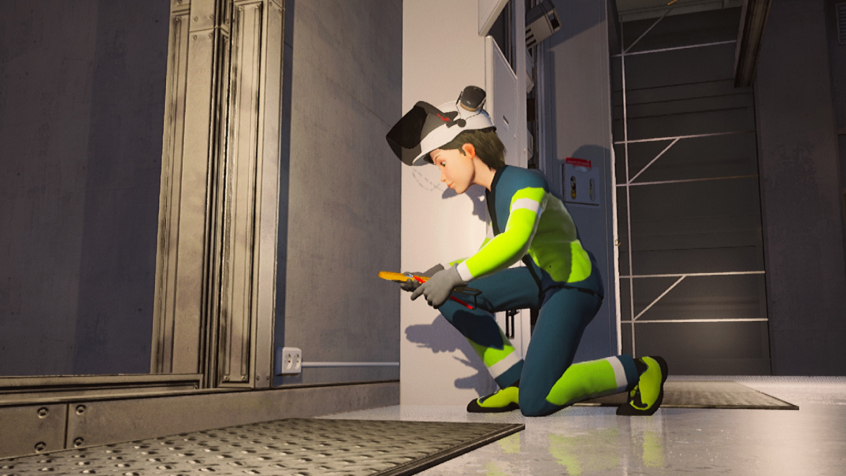to access your courses, safety cards and other features.

Do you work in or operate electrical installations? Then it is important that you are familiar with the FSE regulations and the measures that ensures a safe workplace without the risk of accidents.




FSE courses are mandatory training that fulfils the requirements of the FSE regulations §7 (Regulations on safety in work and operation of electrical installations). In FSE courses, you learn about risk assessment, planning, and work methods to avoid electrical hazards. The goal is to ensure a safe and secure workplace without personal injuries. We also offer Live Working course with practical and theoretical training in the proper use of protective equipment, as well as CPR. FSE courses must be completed at least every 12 months according to the guidelines for §7 in the FSE.
FSE courses are mandatory training that fulfils the requirements of the FSE regulations §7 (Regulations on safety in work and operation of electrical installations). In FSE courses, you learn about risk assessment, planning, and work methods to avoid electrical hazards. The goal is to ensure a safe and secure workplace without personal injuries. We also offer Live Working course with practical and theoretical training in the proper use of protective equipment, as well as CPR. FSE courses must be completed at least every 12 months according to the guidelines for §7 in the FSE.
Trainor's FSE courses are designed for electrical professionals who perform work on or near electrical installations. We also offer courses for instructed personnel and those who have access to electrical installations. Instructed personnel are individuals without an electrical background who perform operational tasks defined by the company's instructions. This may include shift leaders, operations operators, process operators, machine operators, caretakers, maintenance personnel, and other personnel assigned specific tasks.

Trainor's FSE courses are designed for electrical professionals who perform work on or near electrical installations. We also offer courses for instructed personnel and those who have access to electrical installations. Instructed personnel are individuals without an electrical background who perform operational tasks defined by the company's instructions. This may include shift leaders, operations operators, process operators, machine operators, caretakers, maintenance personnel, and other personnel assigned specific tasks.
Increase safety for workers with access to high-voltage areas, thus minimizing risk to yourself and others in the proximity of high-voltages.
Increase safety for personnel who have access to electrical installations to avoid exposing yourself or others to risk associated with proximity to low-voltage or high-voltage installations.
Do you think about safety when you carry out your work in electrical installations offshore? Stay up to date so that you do not expose yourself or others to danger.
Increase safety for all who work with electric installations, providing a safe, accident-free working environment, for you and your colleagues.
Electrical Safety Course for individuals assigned to perform basic operational tasks, such as changing fuses and resetting protection devices in electrical installations, as instructed personnel.
Increase safety for all who work with electric installations, providing a safe, accident-free working environment, for you and your colleagues.
Increase safety for all who work with electric installations, providing a safe, accident-free working environment, for you and your colleagues.
Advanced course for those who work on live low voltage systems. The course has a practical approach and focus on the correct use of protective equipment.
Theory course for instructed personnel serving protection in electrical installations.
Increase safety for all who work with electric installations, providing a safe, accident-free working environment, for you and your colleagues.
Increase safety for all who work with electric installations, providing a safe, accident-free working environment, for you and your colleagues.
FSE training with first aid module for those who work with low-voltage electrical systems.
FSE training with first aid module for those who work with low-voltage electrical systems.


It is stated in §7 of the FSE regulations.
When you use the work method described in §16 of the FSE regulations.
Anyone who may be exposed to electrical hazards in installations with a voltage exceeding 1000 V (nominal) AC and/or over 1500 V DC should take the FSE high-voltage course.
The general rule is that LFS/AFA must meet relevant requirements in FEK when work related to electrical installations regulated by FEK is performed. The authority responsible for approving and appointing LFS/AFA, based on a risk assessment, may choose to appoint LFS/AFA who do not meet relevant requirements in FEK, but must be able to justify their choice.
DSB describes in Electrical Safety 73 what an instructed person can do. After training, an instructed person can operate protection/motor protection to attempt to maintain necessary operations in a facility.
An instructed person should not connect/disconnect motors and they cannot replace a circuit breaker or a contactor.
An instruction should contain necessary information for the instructed person to work safely. This should include, among other things, a description of the work the instructed person can perform (including any limitations in the type of protection, size in amperes, and short-circuit effects). Furthermore, requirements for personal protection (work clothing and personal protective equipment) should be stated.
The instruction does not need to contain details on how to operate various protections. The instructed person should have sufficient practical training to operate the protections covered by the instruction safely.
Yes, anyone granted independent access to an installation must, according to the guidelines for § 7 and § 9 in FSE, have knowledge of the hazards the installation represents.
In principle, anyone can conduct first aid courses related to training requirements in the regulation (FSE).
The guidelines for § 7 include, among other things, the following: necessary first aid preparedness means that personnel must also receive annual training in first aid and special training in first aid for accidents caused by electrical current. The training must be documented in the company's internal control.
The company must ensure that all employees who may be exposed to electrical hazards in the course of their work shall have tailored FSE training in accordance with § 7 of the FSE regulation. The guidelines for the regulation should also be followed, as stated in the preamble to the regulation.
The training must be documented in the company's HSE system and can be verified during system audits by the DLE. The most significant consequences of inadequate FSE training, however, may occur during reviews by relevant authorities (Police, Labour Inspection, and DSB/DLE) following an accident.
According to § 7 of the FSE, the course is valid for 12 months before it must be renewed.
The e-learning course must be started within one year from the date of purchase and must be completed within 8 weeks from the moment it is launched. You can pause the course at any time and continue where you left off later.

If you have any questions, please reach out to us for assistance.

